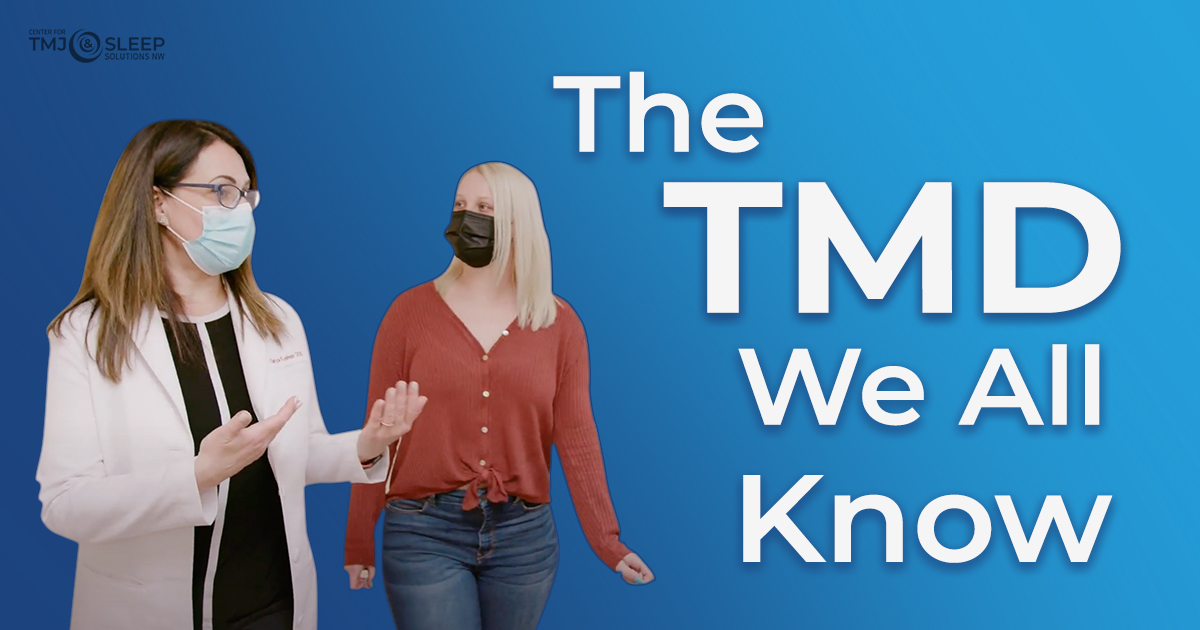
Think You Know Everything About TMD? Let’s Test Your Knowledge.
TMD, if you have it, you know. Familiar symptoms include jaw popping and clicking, painful chewing, and headaches. But did you know some TMD symptoms show up in other parts of your body? In fact, there are quite a few symptoms that people and doctors mistake for something else because they aren’t obviously related to the face or jaw. Keep reading to learn more.
The TMD We All Know
If you have a painful jaw, chronic headaches, or clicking, popping, or grinding when you open and close your mouth, you probably already suspected TMD before you were ever diagnosed. However, some people with TMD don’t have those telltale signs and go years and years without the proper diagnosis and treatment. In fact, the sheer variety of symptoms TMD can cause makes it very difficult for a non-specialist to diagnose and leads to misdiagnosis in many cases.
Often-Missed TMD Symptoms
TMD symptoms do not always show up in the jaw or seem obviously related to a jaw problem. Below is a list of some of the more elusive TMD symptoms that patients experience:
- Earaches – It may make sense anatomically that ear pain would be associated with a jaw disorder. However, is TMD the first thing that comes to mind when you think of an earache? Probably not. Most patients who present with ear pain get treated for ear infection, and when that doesn’t resolve the problem, they are left wondering where to go next.
- Tingling Sensation – The nerves that run down your arms to your fingers start from one nerve near your jaw. A misaligned jaw joint can pinch or put pressure on that nerve, causing a tingling sensation anywhere that nerve goes, including the tips of your fingers, arms, neck, and face.
- Dizziness – Although we don’t fully understand the connection, it is possible that poor positioning of the jaw joint could trigger dizziness. Some researchers have hypothesized that sensitive or hyperactive chewing muscles can cause contractions that lead to dysfunction in the structures connecting the ear and nose, creating an imbalance.
- Tinnitus/Hearing Impairment -This connection is also not completely clear. However, it may also be related to the poor positioning of the jaw joint or contracting muscles affecting the inner ear. What we do know is that hearing symptoms are quite common with TMD and often get mistakenly attributed to something else.
Stay Educated
If you’ve already received a TMD diagnosis, you may not be looking for additional symptoms in yourself. However, if you currently do not have a treatment regimen and you start experiencing a new symptom, it may be a sign that your disorder has begun to deteriorate further. Additionally, knowing more about potential TMD symptoms is useful should your spouse, partner, or child start experiencing one or more of them. In any case, do not hesitate to call us to schedule a consultation.
Please call one of our four office locations — Bellevue, Federal Way, Lynnwood, and Silverdale, WA — if you have any questions or need to schedule an appointment with one of our TMD doctors. We look forward to hearing from you.










